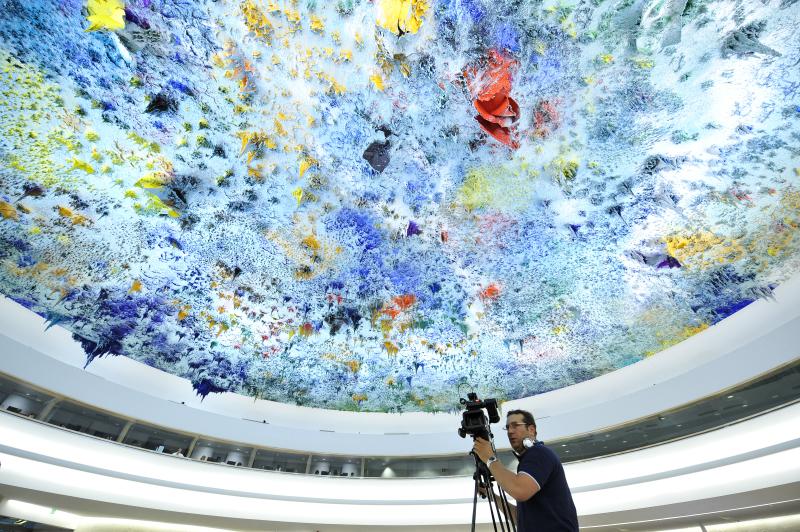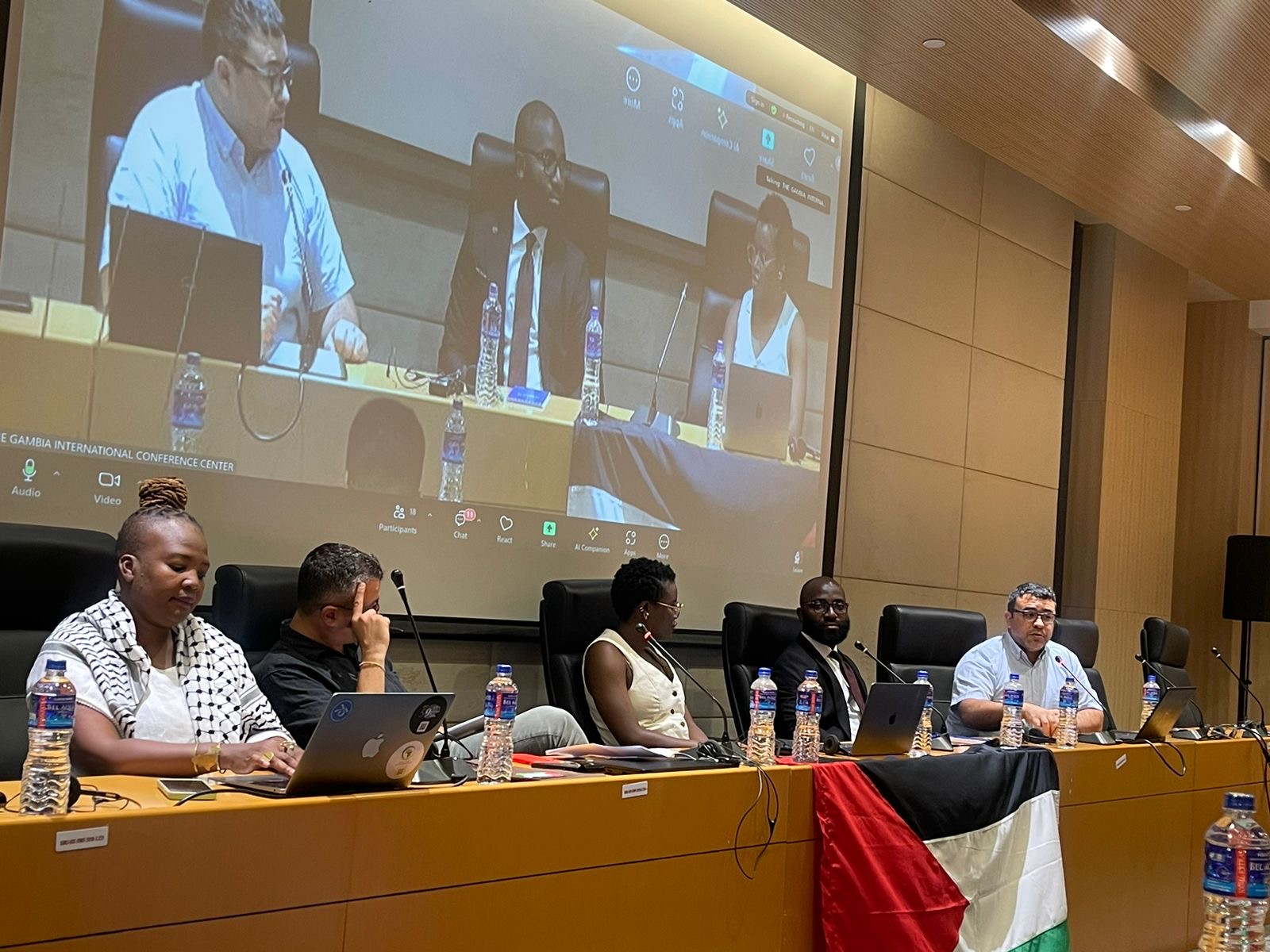(Geneva) – Kuwait should take immediate steps to protect the rights to freedom of expression, association and assembly in law and practice and to repeal laws which have the purpose or effect of criminalising human rights advocacy, ISHR told the Human Rights Council today.
The call came on the occasion of the Council’s adoption of the report of the Universal Periodic Review of Kuwait, with ISHR’s statement also emphasising the importance of Kuwait engaging in good faith with the UN human rights system, including the Council itself and its Special Procedures, and to desist from acts of intimidation or reprisals against Kuwaiti human rights activists who expose and seek accountability for violations at the UN.
‘Respect for the rights to freedom of expression, association, assembly and non-discrimination, together with support for a vibrant civil society, are essential to Kuwait’s development. We urge Kuwait to protect these rights in law and in practice and to end attacks, restrictions and reprisals against human rights defenders such as Nawaf Al-Hendal, the work of whom is vital to protect human rights, promote good government, and uphold the rule of law,’ said ISHR Director Phil Lynch.
The statement in full read:
Respect for the rights to freedom of expression, association, assembly and non-discrimination, together with support for a vibrant civil society, are essential to Kuwait’s development.
Despite this, the prosecution of bloggers, opposition activists and human rights defenders for ‘undermining the status of the emir’ remains widespread. Disturbingly, lese-majeste, national security and ‘national unity’ laws have also been used to prosecute activists who are critical of the human rights records of States with which Kuwait has diplomatic relations, including Saudi Arabia and Egypt.
In this respect, we welcome recommendations from Uruguay, Norway, Australia and others for Kuwait to guarantee basis democratic freedoms and to respect and protect journalists, defenders and demonstrators.
We urge Kuwait to implement these recommendations, as they are legally obliged to do under the International Covenant on Civil and Political Rights, and to repeal or amend the Public Gatherings Law, the Penal Code, national security laws, press regulations, and lese-majeste and blasphemy laws, all of which are used to criminalise human rights advocacy in the country.
Kuwait also received recommendations from States including Latvia, the United States, Cuba and Cote d’Ivoire to cooperate or enhance cooperation with international human rights mechanisms, including the Special Procedures. Good faith cooperation includes protection and accountability when it comes to acts of intimidation and reprisals.
In this regard, we remain deeply concerned at reprisals against human rights defenders such as Nawaf Al-Hendal in retaliation for their UPR advocacy and in connection with their peaceful exercise of the rights to freedom of expression, association and assembly. While and since participating in the UPR, Al-Hendal has been charged with damaging foreign relations, arrested, beaten, detained for participating in a so-called ‘illegal protest’, and made subject to travel restrictions, all in violation of the ICCPR and Kuwait’s obligation to cooperate with this Council.
We call on Kuwait to desist from reprisals and ensure accountability where they occur. We also encourage Kuwait in its efforts to establish a national human rights institution in conformity with the Paris Principles. NHRIs, together with a vibrant civil society, can play a vital role in the implementation of international human rights commitments on the ground.
Thank you.



